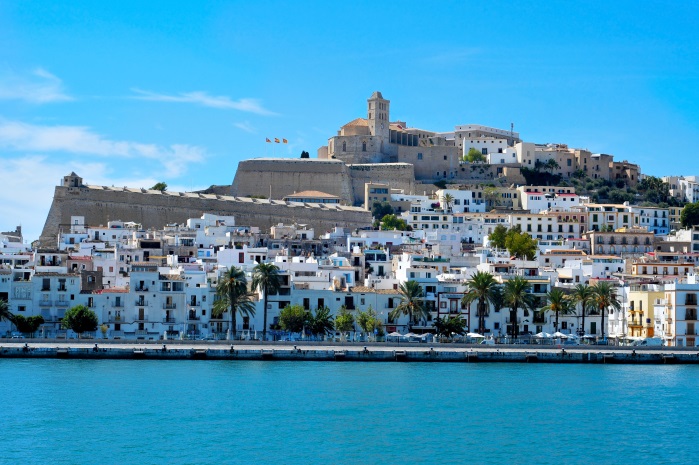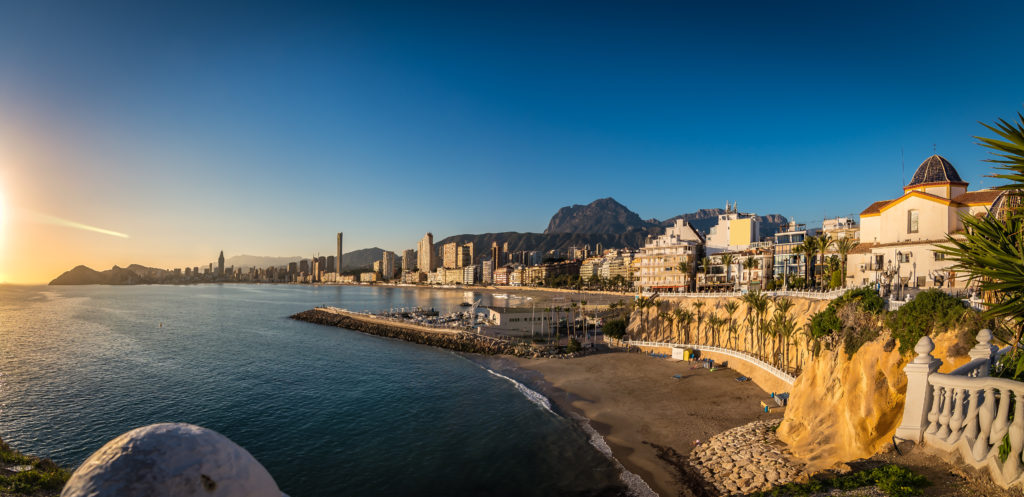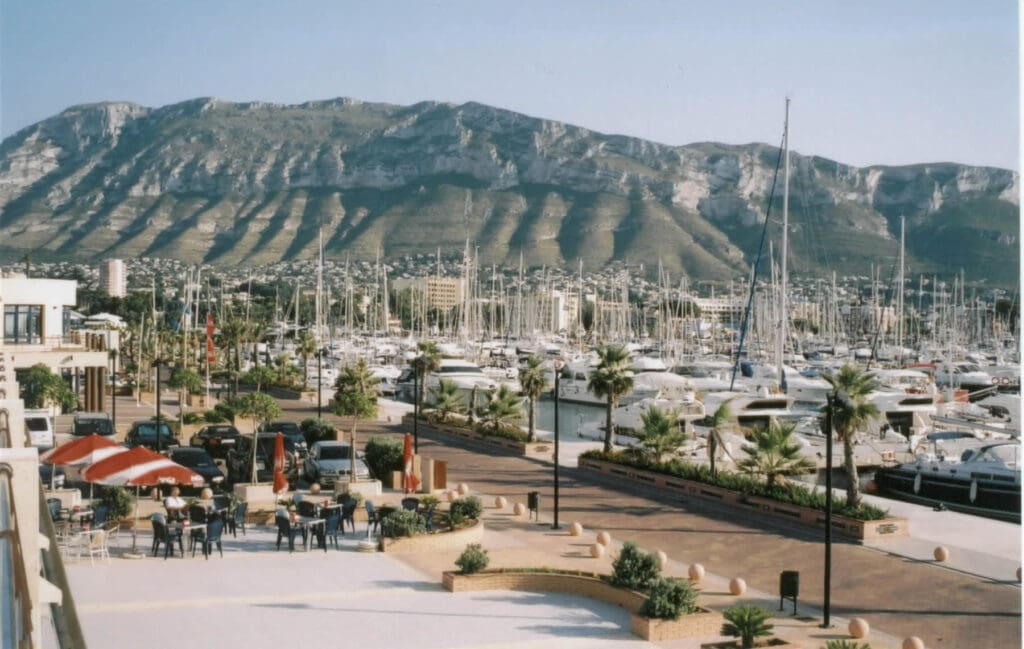
Discover Denia in Spain: A Comprehensive Travel Guide
Discover the hidden gem of Denia in Spain, a charming coastal town that offers a perfect blend of history, culture, and natural beauty. Nestled in the Marina Alta region of the Costa Blanca, this enchanting destination boasts pristine beaches, a rich heritage, and a vibrant atmosphere that will captivate your senses. With its Mediterranean climate and stunning landscapes, Denia provides an ideal setting for your next unforgettable vacation.
As you explore Denia, you'll find a wealth of experiences waiting to be uncovered. From lounging on sun-kissed beaches and snorkeling in crystal-clear waters to hiking through scenic trails and indulging in mouthwatering seafood and tapas, there's no shortage of things to do. You'll also have the chance to delve into the town's fascinating history at its ancient castle, immerse yourself in local cultural festivals, and even hop on a ferry to Ibiza for a day trip. Whether you're seeking relaxation or adventure, Denia has something to offer every traveler.
Exploring Denia's Rich History
The Ancient Iberian Roots
Denia's history stretches back to prehistoric times, with significant Iberian ruins found on nearby hillsides. These ancient settlements laid the foundation for the city's rich cultural heritage. In the 4th century BC, there's evidence suggesting the presence of a Greek colony in the area, possibly known as Hēmeroskopeion, meaning "watchtower". The strategic location of Denia, with its prominent Mount Montgó, made it an ideal spot for navigation and monitoring the passage of ships along the coast.
Roman Influence and Dianium
The Romans recognized the strategic importance of Denia and established a significant presence in the area. They named the city Dianium, after the Roman goddess Diana. In the 1st century BC, Quintus Sertorius set up a Roman naval base in Denia's port, which led to the city's growing importance. Between the first half of the 1st century BC and the mid-2nd century AD, Dianium experienced an economic boom. Large slaveholder villas dedicated to wine and oil production exported their goods to Gaul, Liguria, and Rome. This period also saw the start of amphora and tile production in the Roman Vila of Almadrava.
Moorish Rule and the Taifa Kingdom
After the fall of the Roman Empire and a brief period of Visigothic rule, Denia came under Muslim control in the early 8th century. The city, known in Arabic as Dāniyya, initially experienced a decline in its port and commercial activities. However, with the disintegration of the Caliphate of Córdoba in 1010, Denia became the capital of an independent Muslim Taifa kingdom. Under the rule of Mujāhid al-ʿĀmirī, a freed slave of probable Slavic origin, Denia flourished as a cultural and economic center. The kingdom extended its influence over part of the Valencian coast and even conquered the Balearic Islands.
Christian Reconquest and Modern Era
In 1244, Denia was reconquered by Christian forces led by Jaume I of Aragon. This event marked a significant turning point in the city's history, leading to the expulsion of the Muslim population and a period of decline. The city was later repopulated by the Valencian government and became part of the Crown of Aragon. In 1487, Diego Gómez de Sandoval y Rojas was named the first Marquis of Denia by Ferdinand the Catholic. The city's fortunes fluctuated over the centuries, with periods of prosperity interspersed with challenges such as the expulsion of the Moriscos in 1609 and involvement in the War of the Spanish Succession in the early 18th century.
Denia's Stunning Beaches and Coastline
Denia in Spain boasts an impressive 20-kilometer coastline that offers a diverse range of beach experiences. The northern part of Denia features wide, sandy shores, while the southern area is characterized by rocky coves, providing something for every beachgoer.

Las Marinas: Miles of Sandy Shores
The beach area known as Las Marinas, or Les Marines de Dénia, stretches along the northern coast of the city. This expansive area is primarily composed of sandy beaches. The furthest section from Denia transitions are the stone beaches like L'Almadrava. One of the most popular beaches in this area is Playa Les Bovetes. It has been awarded the prestigious Blue Flag recognition. With an approximate extension of 1,800 meters. Les Bovetes is not only one of the largest but also one of the most visited beaches on the Dianense coast.
Las Rotas: Rocky Coves and Crystal Waters
The southern part of Denia's coastline, known as Les Rotes, offers a stark contrast to the sandy beaches of Las Marinas. This area is renowned for its rocky landscape and clear water coves, making it a charming and unique destination. The El Trampolí beach, located in Les Rotes, is a rocky stretch approximately one kilometer long. It's important to note that one of the access ramps to the water will be closed due to safety concerns.
Water Activities and Sports of Denia
Denia's beaches provide excellent opportunities for various water activities and sports. The crystal-clear waters of Les Rotes are perfect for snorkeling and diving enthusiasts. The area is part of the Cape San Antonio Sea Reserve, which is environmentally protected and offers a rich underwater ecosystem to explore. For those interested in more active pursuits, Les Deveses beach, located at the northernmost part of Denia, is a popular spot for kitesurfing and windsurfing. With almost 3 kilometers of extension, it's the widest sandy beach in the municipality and is often crowded with athletes enjoying water sports.
Beach Clubs and Chiringuitos in Denia
To enhance your beach experience, Denia offers a variety of beach clubs and chiringuitos (beach bars) along its coastline. These establishments provide a perfect blend of relaxation, good food, and stunning sea views. One highly recommended chiringuito is located on the beach to the north of Denia. Visitors praise its excellent food, particularly the fresh seafood, and the superb service provided by the staff. Another popular spot is Tona Chiringuito, known for its good tapas, drinks, and prime location directly on the beach, offering a perfect setting to enjoy the Mediterranean atmosphere.
Cultural Attractions and Landmarks of Denia
Denia in Spain offers a wealth of cultural attractions that showcase its rich history and vibrant heritage. From ancient fortifications to fascinating museums, the city provides visitors with numerous opportunities to explore its past and present.
Denia Castle: A Window to the Past
Perched atop a hill overlooking the city, Denia Castle stands as a testament to the town's strategic importance throughout history. This impressive fortress, with origins dating back to Islamic times, offers a journey through different historical periods. As you explore the castle grounds, you'll encounter various architectural styles, including Islamic, Christian, and Renaissance elements.
The castle's main entrance, known as the Portal de la Vila, features striking Almohad-style pointed horseshoe arches. As you wander through the complex, you'll come across notable structures such as the Torre Roja (Red Tower) and the Torre del Consell. The panoramic views of Denia's coastline and the surrounding landscape from the castle's vantage points are simply breathtaking.
Archeological Museum
Located within the castle complex, the Archeological Museum of Denia provides visitors with a fascinating glimpse into the city's past. Housed in the restored Governor's Palace, the museum showcases artifacts from various periods of Denia's history. The exhibition is divided into four distinct areas, each focusing on a different era: Iberian, Roman, Muslim, and Christian.
The museum's collection includes a wide range of artifacts, from ancient pottery and tools to intricate jewelry and religious objects. These exhibits offer valuable insights into the daily lives, customs, and artistic expressions of the diverse cultures that have called Denia home throughout the centuries.
Toy Museum
For a unique cultural experience, visit the Toy Museum (Museo del Juguete) located in the former Dénia-Carcaixent train station. This museum celebrates Denia's rich history as a center for toy manufacturing in the early 20th century. The collection features a wide variety of toys produced in Denia from the early 1900s to the 1960s.
As you explore the museum, you'll encounter an impressive array of vintage toys, including wooden playthings, metal trains, and pedal cars. The exhibits not only showcase the evolution of toy design but also provide a glimpse into the social and economic history of Denia during this period. It's a nostalgic journey that will delight visitors of all ages.
Ethnological Museum
To gain a deeper understanding of Denia's cultural heritage, make sure to visit the Ethnological Museum. Housed in a 19th-century building in the historic center, this museum offers a look at the traditional way of life in Denia. It has a particular focus on the raisin trade that once dominated the local economy.
The museum's exhibits include a collection of old photographs documenting the raisin production process. It also displays of traditional clothing, work tools, and household items from the late 19th and early 20th centuries. One of the highlights is the ceramic flooring created by the renowned Valencian painter Francesc Dasí, which adds an artistic touch to the museum's historical narrative.
Gastronomy and Nightlife of Denia
Denia in Spain is a culinary paradise that has earned its place as a UNESCO City of Gastronomy. This recognition highlights the city's commitment to preserving its rich gastronomic heritage while embracing innovation in the food industry. Denia's culinary scene is deeply rooted in the Mediterranean diet, emphasizing fresh, local ingredients and sustainable practices.
UNESCO City of Gastronomy
Denia's status as a UNESCO City of Gastronomy is a testament to its thriving food culture. The city's gastronomy and food industries are major economic drivers, generating over 2,500 direct jobs across more than 500 enterprises. This sector contributes significantly to the local economy, with traditional fishing alone bringing in about 15 million euros in annual sales. Denia's approach to gastronomy focuses on developing innovative models of local food ecosystems. It is promoting healthy food based on local resources and products.
Local Delicacles and Seafood
The city's coastal location provides an abundance of fresh seafood, which plays a starring role in many local dishes. One of the most famous delicacies is the red shrimp, a species that thrives in the warm waters of Denia. This prized ingredient is often enjoyed simply grilled or incorporated into traditional rice dishes.
Denia's culinary landscape is rich with local specialties that showcase the region's flavors. The Espencat, a cold salad featuring baked red peppers, eggplant, and cod, is a must-try dish. Another local favorite is the Llandeta, a white fish and rice stew that exemplifies the city's seafood-centric cuisine. For those with a sweet tooth, the pumpkin and chocolate cake is a delightful treat that shouldn't be missed.

Michelin-Starred Dining
Denia's gastronomic excellence is further highlighted by its Michelin-starred restaurants. The city boasts several establishments recognized by the prestigious Michelin Guide, offering world-class dining experiences. Quique Dacosta, a three-Michelin-starred restaurant, stands out as a culinary beacon, reflecting the chef's commitment to championing nature and showcasing Mediterranean produce. Other notable Michelin-starred venues include Peix & Brases, which specializes in traditional Mediterranean cuisine with a focus on grilled preparations and rice dishes.
Vibrant Bar Scene in Denia
As the sun sets, Denia's nightlife comes alive with a diverse array of bars and clubs. The city offers something for every taste, from chic lounges overlooking the sea to pulsating dance floors. Condado Denia and Sounders Denia are popular nightclubs that promise an electrifying atmosphere with top-tier DJs and state-of-the-art sound systems. For those seeking a more relaxed evening, venues like Lamarserena offer a cozy ambiance perfect for unwinding with friends over cocktails.
Conclusion
Denia's allure lies in its perfect blend of history, natural beauty, and vibrant culture. This coastal gem offers something for everyone, from sun-soaked beaches and ancient landmarks to mouthwatering cuisine and lively nightlife. Its status as a UNESCO City of Gastronomy is a testament to its culinary excellence. Its rich historical heritage provides a fascinating backdrop for exploration.
Whether you're looking to relax on pristine shores, dive into centuries of history, or tantalize your taste buds with fresh seafood and local delicacies, Denia has you covered. This charming Spanish town's unique combination of Mediterranean charm and modern amenities makes it an ideal destination for travelers seeking an authentic and unforgettable experience. So pack your bags and get ready to discover the many wonders that Denia has to offer.
Check here if you want to look at different properties in Denia


